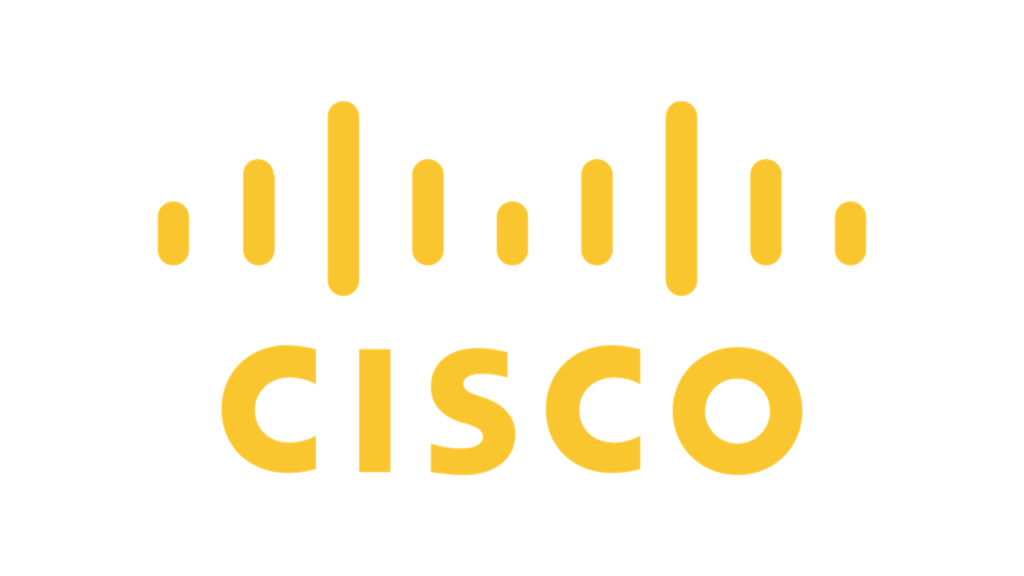Introduction
In today’s digital age, where connectivity is the backbone of every industry, having a strong network is crucial for success. Whether you are a seasoned professional or just starting your career, investing in a network course and certificate can unlock your potential and open doors to countless opportunities.

The Importance of Network Courses and Certificates
Network courses provide a comprehensive understanding of networking principles, protocols, and technologies. They equip you with the knowledge and skills required to design, build, and maintain robust networks. Additionally, obtaining a network certificate validates your expertise and serves as a testament to your dedication and commitment to mastering the field.
By enrolling in a network course and earning a certificate, you demonstrate to employers and peers that you possess the necessary skills to excel in the networking industry. It sets you apart from the competition and gives you a competitive edge when applying for jobs or seeking career advancement. Furthermore, network courses and certificates provide a solid foundation for continuous learning and professional growth.
Benefits of Obtaining a Network Course and Certificate
There are numerous benefits to obtaining a network course and certificate. Firstly, it enhances your knowledge and understanding of networking concepts, enabling you to troubleshoot and resolve complex issues efficiently. This not only saves time but also improves the overall performance of the network.

Secondly, network courses and certificates increase your marketability. Employers value individuals who have invested time and effort in acquiring specialized knowledge. With a network course and certificate on your resume, you become a desirable candidate for networking positions in various industries such as IT, telecommunications, finance, and healthcare.
Moreover, network courses and certificates provide a pathway to career advancement. They open doors to higher-level positions with increased responsibilities and better compensation packages. Whether you aspire to become a network engineer, network administrator, or network security specialist, a network course and certificate can help you climb the career ladder.
Choosing the Best Network Course and Certificate
When it comes to choosing the best network course and certificate, several factors should be taken into consideration. Firstly, evaluate the curriculum of the course. Ensure that it covers a wide range of networking topics, including network design, routing protocols, network security, and wireless networking.

Secondly, consider the reputation of the institution or training provider offering the network course and certificate. Look for reviews and testimonials from previous students to gauge the quality of education and level of support provided. Additionally, check if the institution is accredited, as this ensures that the course meets industry standards.
Furthermore, assess the delivery method of the network course. Some courses offer in-person classroom training, while others provide online self-paced learning. Additionally, consider the availability of practical hands-on exercises and labs, as they are crucial for gaining practical experience.
Top Network Courses and Certificates
Now that you understand the importance of network courses and certificates and how to choose the best one, let’s explore some of the top network courses and certificates available in the market.

- Cisco Certified Network Associate (CCNA):
- Key Points: The CCNA course covers a wide range of networking basics, including routing and switching, as well as network security. It provides a solid foundation for aspiring network professionals.
- Salary: On average, CCNA professionals earn an annual salary of $78,000. This is a competitive salary that reflects the value of the CCNA certification in the job market.
- Future: Obtaining a CCNA certification can open up various job opportunities, such as network administrator, network engineer, or systems administrator. The future prospects for CCNA professionals are promising.
- Cisco Certified Network Professional (CCNP):
- Key Points: The CCNP course delves into advanced networking concepts, focusing on troubleshooting, implementing secure networks, and designing network infrastructure. It is designed for individuals who want to take their networking skills to the next level.
- Salary: CCNP professionals can expect to earn around $95,000 per year, which is a testament to the expertise and knowledge gained through this certification.
- Future: With a CCNP certification, professionals can pursue senior networking positions, such as network architect or network consultant. The CCNP certification opens doors to exciting career opportunities.
- CompTIA Network+:
- Key Points: The CompTIA Network+ course provides a comprehensive understanding of network technologies, protocols, and network troubleshooting. It covers a wide range of topics essential for networking professionals.
- Salary: Network+ certified professionals earn an average salary of $65,000 per year. This certification serves as a solid foundation for entry-level networking positions.
- Future: Network+ certification is widely recognized in the industry and can pave the way for individuals to secure entry-level networking positions. It is a stepping stone towards a successful networking career.
- Certified Information Systems Security Professional (CISSP):
- Key Points: The CISSP course focuses on network security and covers topics such as access control systems, cryptography, and disaster recovery. It equips professionals with the knowledge and skills necessary to protect networks from potential threats.
- Salary: CISSP professionals earn an average salary of $116,000 per year, which reflects the high demand for network security experts.
- Future: CISSP certification is highly sought after and can lead to lucrative positions in network security and information assurance. The future prospects for CISSP professionals are promising.
- Juniper Networks Certified Internet Associate (JNCIA):
- Key Points: The JNCIA course covers Juniper Networks technologies, including routing, switching, and security fundamentals. It provides a comprehensive understanding of Juniper Networks equipment.
- Salary: JNCIA certified professionals can expect to earn around $85,000 per year, which reflects the value of this certification in the job market.
- Future: JNCIA certification is recognized globally and can open doors to networking positions in organizations that use Juniper Networks equipment. The future prospects for JNCIA professionals are promising.
- Certified Ethical Hacker (CEH):
- Key Points: The CEH course focuses on ethical hacking techniques, network vulnerabilities, and penetration testing. It equips professionals with the skills to identify and address potential security risks.
- Salary: CEH professionals earn an average salary of $90,000 per year, which reflects the demand for professionals with expertise in network security and ethical hacking.
- Future: CEH certification is valuable for professionals interested in network security and ethical hacking roles. The future prospects for CEH professionals are promising.
- Palo Alto Networks Certified Network Security Engineer (PCNSE):
- Key Points: The PCNSE course focuses on network security using Palo Alto Networks technologies, including firewall deployment and configuration. It equips professionals with the skills to secure networks effectively.
- Salary: PCNSE certified professionals can expect to earn around $110,000 per year, which reflects the value of this certification in the job market.
- Future: PCNSE certification is highly regarded and can lead to positions as a network security engineer or network architect. The future prospects for PCNSE professionals are promising.
- Certified Wireless Network Professional (CWNP):
- Key Points: The CWNP course covers wireless networking technologies, including Wi-Fi design, security, and troubleshooting. It provides professionals with the skills to design and maintain wireless networks.
- Salary: CWNP certified professionals earn an average salary of $85,000 per year, which reflects the demand for professionals with expertise in wireless networking.
- Future: CWNP certification is valuable for professionals working in wireless networking, including network engineers and wireless network administrators. The future prospects for CWNP professionals are promising.
- AWS Certified Advanced Networking – Specialty:
- Key Points: The AWS Certified Advanced Networking – Specialty course focuses on designing and implementing AWS networks, including network security and optimization. It equips professionals with the skills to work with AWS networking services.
- Salary: AWS certified professionals can expect to earn around $120,000 per year, which reflects the high demand for professionals with expertise in cloud networking and infrastructure.
- Future: AWS certification is in high demand, and specializing in networking can lead to well-paying roles in cloud networking and infrastructure. The future prospects for AWS certified professionals are promising.
- VMware Certified Professional – Network Virtualization (VCP-NV):
- Key Points: The VCP-NV course covers network virtualization concepts, VMware NSX, and software-defined networking. It equips professionals with the skills to work with virtualized networking environments.
- Salary: VCP-NV certified professionals earn an average salary of $105,000 per year, which reflects the value of this certification in the job market.
- Future: VCP-NV certification is valuable for professionals working in virtualized networking environments. The future prospects for VCP-NV professionals are promising.
These top 10 networking courses provide a wide range of opportunities for individuals looking to build a successful career in networking. Whether you’re a beginner or an experienced professional, investing in these certifications can significantly enhance your knowledge, skills, and earning potential. Networking is a dynamic field with a bright future, and these courses can help you stay ahead in this ever-evolving industry.
How to Excel in a Network Course
Enrolling in a network course is just the first step toward unlocking your potential. To truly excel and make the most of the learning experience, follow these tips:
- Stay Organized: To stay organized and effectively manage your studies, it’s important to create a study schedule and stick to it. This will help you allocate dedicated time for studying and completing assignments. Breaking down the coursework into manageable chunks and setting specific goals for each study session can also greatly enhance your productivity.
- Engage actively: Actively participate in class discussions, ask questions, and seek clarification whenever needed. Engaging with the course material and your peers will enhance your understanding and retention of the concepts.
- Practice hands-on: Network courses often provide opportunities for practical exercises and labs. Take full advantage of these hands-on activities to apply the theoretical knowledge and gain practical experience.
- Collaborate with peers: Networking is not only about devices and protocols but also about building connections with other professionals. Collaborate with your peers, participate in group projects, and join networking communities to expand your network and learn from others.
- Seek additional resources: Network courses provide a solid foundation, but don’t limit your learning to the course material alone. Explore additional resources such as books, online tutorials, and industry blogs to deepen your knowledge and stay updated with the latest trends and technologies.
By following these tips, you can maximize your learning potential and stand out as a network professional.
Networking Career Opportunities
A network course and certificate can open the doors to a wide range of career opportunities. Networking professionals are in high demand across industries, as every organization relies on a robust network infrastructure to function effectively. Here are some of the career paths you can pursue after obtaining a network course and certificate:

- Network Engineer: As a network engineer is responsible for designing, maintaining computer networks, and implementing. You will configure network devices, troubleshoot issues, and ensure network performance and security.
- Network Administrator: Network administrators manage and support the day-to-day operations of computer networks. They oversee network infrastructure, implement security measures, and provide technical support to users.
- Network Security Specialist: In an increasingly connected world, network security has become a critical concern for organizations. Network security specialists design and implement security measures to protect networks from cyber threats and ensure data confidentiality and integrity.
- Wireless Network Engineer: Wireless networks play a vital role in today’s mobile-centric world. Wireless network engineers specialize in designing, implementing, and optimizing wireless networks. They ensure seamless connectivity and high-performance wireless solutions.
These are just a few examples of the career paths available to networking professionals. The demand for skilled network professionals is expected to grow in the coming years, making it an exciting and rewarding field to pursue.
Networking Job Market and Salary Prospects
Networking Job Market and Salary Prospects
In today’s rapidly advancing technological landscape, the demand for networking professionals continues to grow at an impressive rate. As businesses increasingly rely on computer networks for their day-to-day operations, the role of networking specialists has become even more crucial in ensuring smooth communication and seamless data transfer. Let’s take a closer look at the job market and salary prospects in the field of networking:
Job Market:
- The job market for networking professionals is not only favorable but also exhibits a steady increase in demand year after year. This trend reflects the ever-growing importance of networking in various industries.
- Networking roles can be found in a wide range of sectors, including IT consulting firms, telecommunications companies, financial institutions, healthcare organizations, and government agencies. This diversity of industries highlights the versatility and applicability of networking skills across different sectors.
- The rise of cloud computing, Internet of Things (IoT), and cybersecurity has further fueled the need for highly skilled networking professionals. These emerging technologies have created new challenges and opportunities, making networking expertise even more valuable in the job market.
- Networking jobs encompass a broad spectrum of positions, ranging from entry-level roles such as network technician or support specialist to more senior positions like network architect or network administrator. This variety of job opportunities ensures that individuals with different levels of experience and expertise can find suitable positions in the networking field.
Salary Prospects:
- Networking professionals enjoy competitive salaries due to the specialized nature of their work. Employers recognize the importance of networking skills and are willing to offer attractive compensation packages to attract and retain top talent.
- Entry-level positions typically offer salaries that range from $40,000 to $60,000 per year, depending on factors such as geographical location, industry, and level of experience. These salaries provide a solid foundation for individuals starting their careers in networking.
- As professionals gain more experience and expertise, their earning potential increases significantly. Mid-level networking specialists can expect salaries in the range of $60,000 to $90,000 per year, reflecting the value of their accumulated knowledge and skills.
- Senior-level networking roles, such as network architects or network managers, can command salaries upwards of $100,000 per year. These positions require a high level of expertise and responsibility, justifying the higher compensation.
- Additionally, networking professionals who hold industry certifications, such as Cisco Certified Network Associate (CCNA) or Certified Information Systems Security Professional (CISSP), often earn higher salaries due to their specialized knowledge and skills. These certifications validate their expertise and make them more desirable to employers, leading to increased earning potential.
Overall, the networking job market offers promising opportunities for individuals interested in pursuing a career in this field. With a strong demand for networking professionals across various industries and attractive salary prospects, it’s an exciting time to enter and grow in the networking industry.
The continuous advancements in technology and the increasing reliance on computer networks ensure that the need for skilled networking specialists will continue to rise, providing a stable and rewarding career path for those who choose to embark on this journey.
So, if you have a passion for technology and a knack for problem-solving, consider exploring the vast possibilities that the networking field has to offer.
Where to Find the Best Network Courses and Certificates
Finding the best network courses and certificates can be overwhelming with the abundance of options available. However, several reputable platforms and institutions offer high-quality network courses and certificates. Here are some places to consider:
- Cisco Networking Academy: Cisco Networking Academy is a globally recognized platform that offers a wide range of networking courses and certifications. They provide comprehensive training materials, hands-on labs, and access to a vast network of instructors and peers.
- Coursera: Coursera is an online learning platform that partners with top universities and organizations to offer a variety of networking courses and certifications. They provide flexible learning options and allow you to learn at your own pace.
- Udemy: Udemy is a popular online learning marketplace that hosts a plethora of network courses and certificates. They offer a wide range of options catering to different levels of expertise and budgets.
- Local Colleges and Universities: Many local colleges and universities offer networking courses and certifications. Check their course catalogs and websites for more information on available programs.
Remember to research and compare the courses and certificates offered by different platforms and institutions to ensure you choose the best one that meets your learning needs and goals.
Conclusion
Investing in a network course and certificate is a wise decision for anyone looking to unlock their potential and thrive in the networking industry. It equips you with the knowledge and skills required to design, build, and maintain robust networks, opening doors to countless career opportunities. By choosing the best network course and certificate, you can stay ahead of the curve and position yourself for success.
So, don’t wait any longer! Start your journey towards unlocking your potential with the best network course and certificate today. Whether you choose to pursue a Cisco Certified Network Associate (CCNA), CompTIA Network+, or any other certification, remember that continuous learning and dedication are key to achieving your goals. Invest in yourself, explore the available options, and embark on a rewarding career in the world of networking.
FAQS
Why should I invest in a network course and certificate?
What are some top network courses and certificates available?
1. Cisco Certified Network Associate (CCNA): It validates your ability to install, configure, operate, and troubleshoot medium-sized networks
2. CompTIA Network+: A vendor-neutral certification ideal for beginners, covering the fundamentals of networking
3. Juniper Networks Certified Associate: This certification focuses on Juniper Networks’ Junos operating system
4. Microsoft Certified: Azure Administrator Associate: Validates your skills in implementing, managing, and monitoring a Microsoft Azure environment
5. Certified Information Systems Security Professional (CISSP): Primarily focused on network security, this certification is highly regarded in the industry
What career opportunities can I pursue after obtaining a network course and certificate?
Where can I find the best network courses and certificates?
Best Network Courses & Certificates Free Guide Top 10 Course. Manglastubh By Ankit Akolkar. Search on Google Free Online Courses.

Welcome to Manglastubh By Ankit Akolkar. Manglastubh website is designed and developed for all kinds of Knowledge-Based Blogs and Articles. Everyone will gain knowledge over here from this website.



